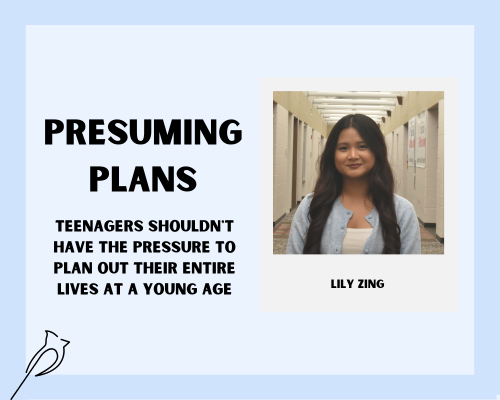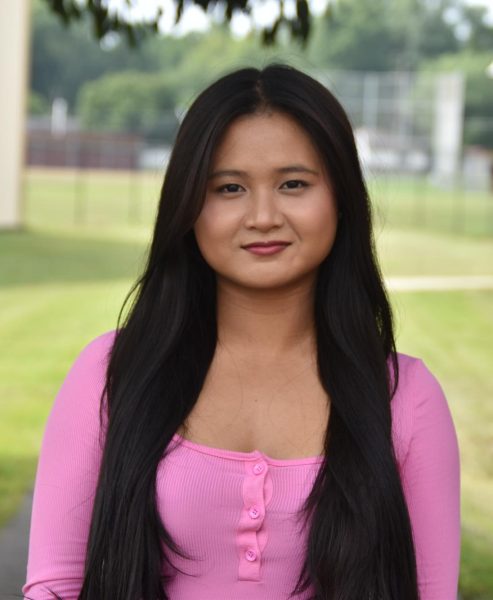Seventeen-year-olds cannot vote in elections, serve on juries or open bank accounts independently, yet society expects them to make lifelong commitments.
When freshman and sophomore years end in the blink of an eye and junior year crashes in, students often panic, feeling the societal pressure to choose a college major that aligns with their future careers.
Entering adulthood is undoubtedly frightening, especially for high school students who are just beginning their journey by starting small part-time jobs or navigating their first experiences of independence like driving. With such limited exposure to the real world, how can teenagers truly grasp what they want to do for the rest of their lives?
According to the National Institute of Health, the prefrontal cortex, the area of the brain responsible for rational decision-making, planning and emotional regulation, doesn’t fully mature until the mid-to-late 20s. Biologically, this suggests that at age 17, teenagers are simply not neurologically equipped to confidently make decisions with lifelong consequences.
From the moment people learn to talk, they start dreaming about what they want to become. However, as individuals grow older, daily routines and immediate responsibilities quickly consume them. Eventually, a reality check strikes, making those dream jobs suddenly seem unreachable.
As teenagers navigate high school, they often become overly focused on immediate tasks such as homework and extracurricular activities. This narrow focus can lead to procrastination in exploring meaningful career paths, resulting in impulsive choices based on what seems appealing at the moment rather than discovering genuine passions.
This pattern is reflected clearly in recent statistics. According to a survey by YouScience of 500 students from four classes between 2019 and 2022, nearly 75% of high school students feel unprepared for their future careers.
These numbers are alarming given the resources available at schools, including career fairs and counselor meetings. However, counselors face limitations in effectively guiding every student when they are responsible for hundreds at a time.
Due to this widespread unpreparedness, students encounter numerous obstacles when searching for their ideal career. Common challenges include entering college undecided, selecting a major only to change it later or, most critically, remaining committed to an unsuitable major out of fear of falling behind peers.
Career exploration is not a linear process but a journey shaped by experience, curiosity and growth. Engaging in part-time jobs, internships or job shadowing can provide critical insight. Society should encourage exploration, not penalize uncertainty by stigmatizing exploration as a setback. Helping students navigate uncertainty with intention will serve them far more than forcing early answers.



